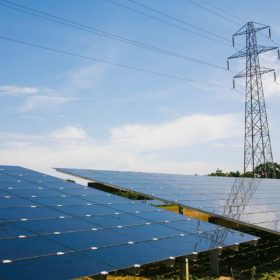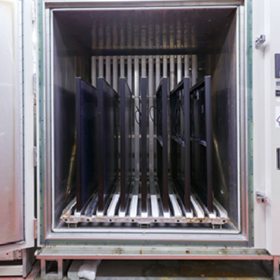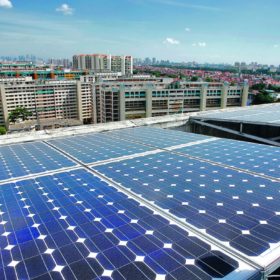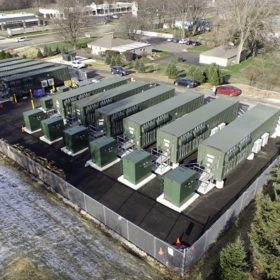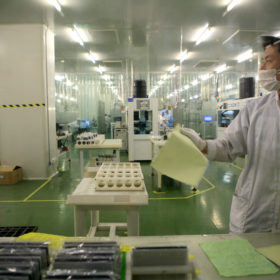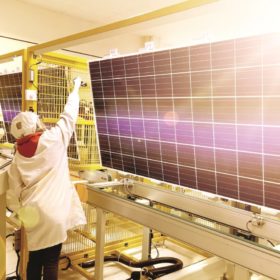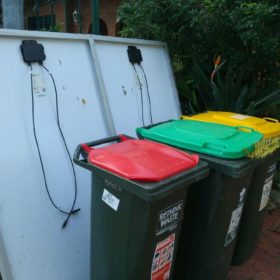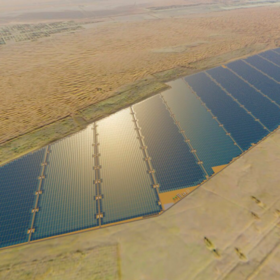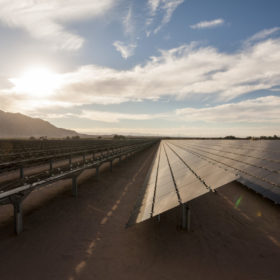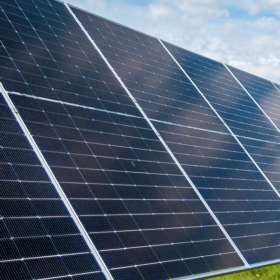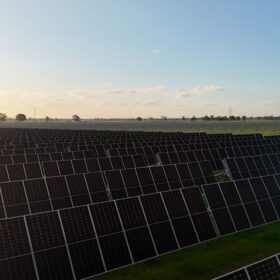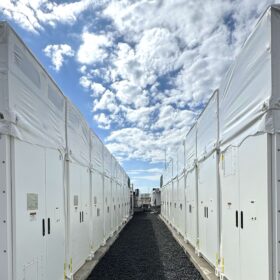PV+storage opportunity looms in Asia-Pacific region: WoodMac
Solar-plus-storage could be competitive against gas peaking power plants in Australia within the next five years, as the average solar-plus-storage LCOE across the Asia-Pacific region is set to fall from $133/MWh this year to $101/MWh by 2023, according to a newly released research report.
DuPont unit and Fraunhofer ISE to work on c-Si module testing
The PV solutions division of DuPont Electronics and Imaging has revealed plans to work with the Fraunhofer ISE on optimizing testing protocols for crystalline silicon solar modules.
Sharp launches three new mono-PERC modules with 19.1% efficiency
Sharp has released three new high-efficiency mono-PERC solar panels. Ranging from 300 W to 370 W, the five-busbar modules are designed for use in a range of applications, from residential PV projects to large commercial installations.
ING to lend $37m to Sunseap to build 50 MW in Asia
The Dutch banking group will serve as sole mandated lead arranger for the S$50 million loan. A unit of Singapore-based developer Sunseap will use the funds to build a 50 MW portfolio of rooftop PV projects.
LCOE for li-ion batteries has fallen to $187/MWh — BloombergNEF
Lithium-ion batteries are increasingly posing a competitive threat to coal- and gas-fired generating plants when paired with solar and wind projects in a number of markets throughout the world, without the need for subsidies, according to new research by BloombergNEF (BNEF).
Shunfeng to sell production assets for $447m
A unit of Shunfeng International Clean Energy (SFCE) has agreed to sell PV manufacturing assets to Asia Pacific Resources Development Investment for RMB 3 billion ($447 million).
Canadian Solar’s PV module shipments surpass 6.6 GW in 2018
Canadian Solar recorded net income of $237.1 million in 2018, from $99.6 million a year earlier, on annual PV module shipments of 6.62 GW.
Long read: Big battle over small-scale
While the rooftop market segment might indicate smooth sailing, the debate over low cost suppliers and installers serving Australian homes and businesses continues to simmer just beneath the surface. And one name remains especially prominent in the discussion: Euro Solar.
Marubeni to double global renewables portfolio in shift from coal
Marubeni has revealed plans to halve its 3 GW global coal-fired power portfolio by 2030, and double its holdings of renewable energy within the next five years.
Blockchain could significantly shape management of renewables, but challenges remain – report
The evolving outlook for project finance, as well as the gradual maturation of technologies, such as blockchain, present new challenges and opportunities for renewables, EY says in its latest Renewable Energy Country Attractiveness Index (RECAI) report. Uncertainty in the sector continues to drive a “relentless focus on cost” to soften the impact of protectionism, subsidy cuts and rising interest rates throughout the world, it adds.
